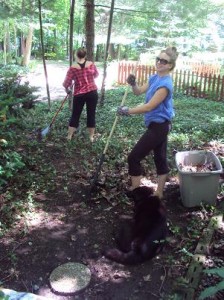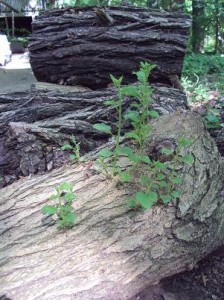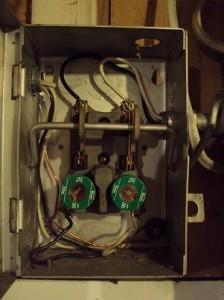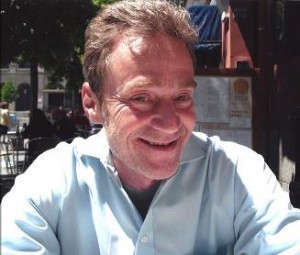Today marks seven months since Nate has been gone, although it seems like only last week we were wrapped in the misery and pain of his pancreatic cancer. I know it’s been many months, however, because I see small signs of healing and growth. Although we may not have wanted it this way, our new lives without Nate are slowly, steadily taking shape.
Louisa and Birgitta spent time with me this week, working cheerfully and hard at whatever I asked. Together we attacked the yard, raking the ivy, picking up sticks, pulling weeds, sweeping the driveway, hanging window boxes, planting flowers, transplanting shoots, bringing house plants outdoors, putting sleds and snow shovels away, and laying down stepping stones. Until now, I’ve had no interest in projects like these, not even in cleaning. Life has been handled best at idle speed. The fact that all our yard work was satisfying is, I believe, a sign of healing for all three of us.
As I pass the front window and see our small pink impatiens peeking through the screen, I get a little lift. They will continue to grow throughout the summer, and we will do the same. There will be set-back days ahead as we come to Father’s Day, Nate’s birthday and the one year anniversary days of our cancer experience in the fall. But God will be on hand as he has been all along, nurturing our growth and guiding our progress.
Today as I walked around the yard surveying our improvements, I noticed something funny going on in a pile of logs sawed from a dead tree last fall. They are stacked together, awaiting the splitting wedge that will transform them into firewood, but one of them isn’t dead at all. It has actually begun growing again. The other logs, all cut from the same tree as the growing one, are completely lifeless.
Nothing happens by accident, and I decided to view those sprouts of new life as God’s encouragement for this day. Although Nate’s cancer brought death into our family, those of us who felt lifeless after he died are beginning to sense the stirrings of something new. Just as the log’s new growth looks different from the original tree trunk, so our lives will look different without Nate. But if we let them, they will continue to grow.
God has new plans, fresh ideas and an innovative strategy for all of us that we know nothing about yet. It took many months for new shoots to come from the “dead” log, and when the time is right, our new shoots will come forth, too. God is busy during these days laying the groundwork for that growth, and we’re all beginning to feel it.
”All the trees of the field will know that I, the Lord, … make the low tree grow tall. I … make the dry tree flourish. I the Lord have spoken, and I will do it.” (Ezekiel 17:24)




